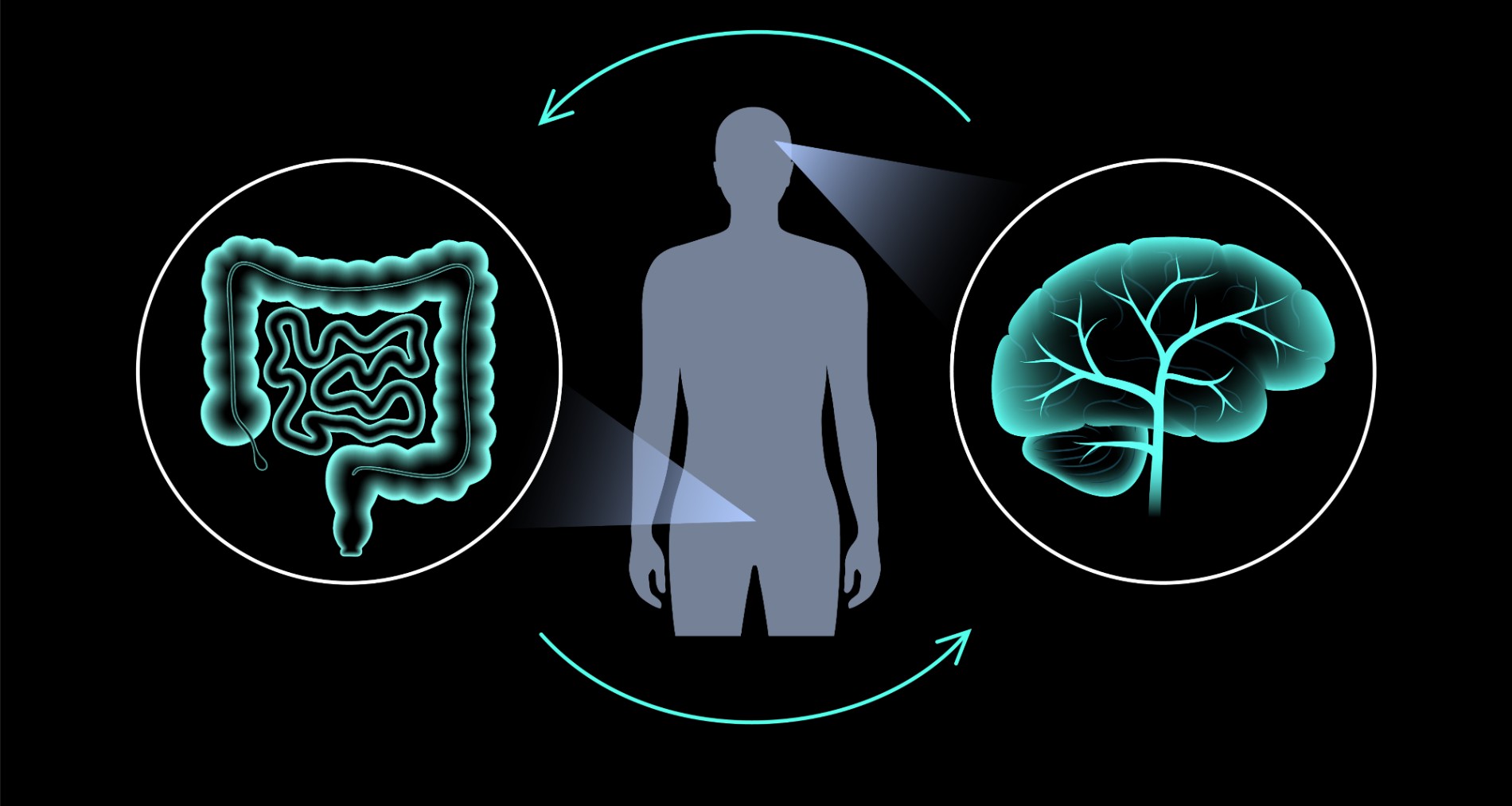
The gut-brain axis connects body and mind, causing problems in the gut to affect the brain and vice versa.
The number of people experiencing physical problems as a result of poor mental health has increased by 28%

Small intestinal bacterial overgrowth (SIBO) has aroused considerable interest among the population in recent years due to its influence on the digestive health and general well-being. In addition to the physical aspects, various research has begun to reveal how conditions such as SIBO and other imbalances in the gut microbiota can have a significant impact on mental health.
The evidence for the existence of a connection between the brain and the gut is increasing. Today it is known that these two organs are connected by a complex network of bidirectional systems known as the gut-brain axis. This network allows both organs to communicate and influence each other, causing problems in the intestine to affect the brain and vice versa. As the study points out Cigna 360-Vitality, Globally, the number of people experiencing physical problems as a result of poor mental health has increased by 28%, especially in women and the population between 25 and 44 years old. This link between mind and body has revealed that imbalances in the gut microbiota can have significant consequences on mental and physical health, underscoring the importance of maintaining a healthy gut to ensure optimal mental well-being.
In Spain, according to the Spanish Society of Primary Care Physicians (SEMERGEN)it is estimated that SIBO affects approximately 15% of the population, especially women between 30 and 50 years old. This is a gastrointestinal syndrome that causes an overgrowth of bacteria in the small intestine, the main part of the digestive system responsible for absorbing nutrients. food nutrients. The most common discomforts of SIBO are abdominal distension, abdominal swelling (or perception of heaviness), feeling of heavy digestion, increased gas, heartburn, diarrhea and constipation. However, other diseases such as irritable colon or dyspepsia also present very similar symptoms, which is causing many people to make an erroneous self-diagnosis of SIBO.
While the medical treatment of SIBO includes the use of antibiotics, dietary changes, and appropriate dietary supplementation, the psychological aspect of treatment is also crucial. «Patients with SIBO can often experience symptoms of anxiety and depression., both due to the persistence of its symptoms and the effect of SIBO on brain chemistry. Additionally, stress and anxiety can exacerbate the symptoms of SIBO, turning the situation into a vicious cycle that is difficult to break. For this reason, the doctor must make an effort to explain to the patient what his pathology consists of and manage his expectations for improvement, since the treatment includes medium and long-term interventions.
It is common for the patient to notice a significant improvement after the first phase of treatment; However, so that the symptoms do not recur, there must be an important change in diet and you must adhere to the prescribed treatment. «In the end, the patient’s lifestyle will be an essential part of the treatment. This includes being mindful of your diet, incorporating a regular exercise routine to improve intestinal motility and reduce stress, as well as ensuring good sleep habits are maintained,” explains the Dr. Daniela Silva, E-Health Manager at Cigna Healthcare.
For this reason, experts have wanted to focus on the importance of maintaining a healthy microbiota to have good physical and mental health through the following aspects:
- Nutrition and optimization of digestive processes. One of the most common nutritional recommendations in the treatment of SIBO is a diet low in FODMAPs (Fermentable Oligosaccharides, Disaccharides, Monosaccharides and Polyols). Many times patients notice a great improvement after implementing this nutritional style. Even so, a low-FODMAP diet is only a temporary intervention and should not be implemented chronically, which is why it is usually accompanied by other therapeutic actions. On the other hand, encouraging a Mediterranean diet can improve certain parameters of intestinal inflammation. In addition, the process of chewing well and slowly has proven to be key to digesting sugars and facilitating the action of gastric juices on food.
- Reduce stress and practice mindful eating. Both stress and anxiety are factors that can exacerbate digestive problems. Keeping stress levels at bay, as well as receiving support through different therapies, helps patients restructure negative thoughts and develop coping strategies, reducing the activation of the sympathetic nervous system and improving digestive function. Likewise, relaxation and mindfulness at mealtime can be a perfect time to listen to bodily sensations, pay attention to hunger cues, and learn to distinguish physiological from emotional hunger.
- Disease prevention. Intestinal dysbiosis, or alteration of the microbiota, can lead to several diseases and long-term complications. One of the consequences of the Intestinal dysbiosis is the impact on the production of fatty acids short chain, which are essential for the proper functioning of the immune system. And, an altered immune system is closely associated with an increase in iChronic low-grade inflammation which increases the risk of developing type 2 diabetes and some types of cancer. Prevention, through good nutrition and a healthy lifestyle, is essential to ensure a correct balance of the microbiota.
- Consumption of probiotics and prebiotics. While probiotics are live microorganisms that, in adequate quantities, provide numerous health benefits, prebiotics are non-digestible substrates that stimulate the growth or activity of indigenous microorganisms. Therefore, eating foods rich in probiotics, such as yogurt and kefir, together with prebiotics, present in bananas, apples or asparagus, it helps to facilitate digestion, improve the function of the intestinal barrier or stimulate the activity of the good bacteria. This point is essential for prevention. In cases of SIBO, an increase in the consumption of these foods can worsen the symptoms, so the patient must seek medical treatment and subsequently incorporate the nutritional changes indicated for each case.
- The happiness diet. Neurons in the nervous system communicate with each other using chemicals called neurotransmitters (NT) and messenger proteins called hormones. There are NT and hormones that are associated with better mood, such as serotonin, dopamine, endorphins and oxytocin. It must be taken into account that 95% of the body’s serotonin is produced in intestinal cells, which highlights the importance of this organ in mood. Those foods rich in tryptophanor, like eggs, dairy products, nuts or legumes, they facilitate an increase in serotonin and have a direct positive impact on mood.
- On the contrary, the habitual consumption of refined sugars and trans fats has the opposite effect on the brain, causing discomfort, negativity and bad mood. For its part, a diet rich in magnesium and tyrosine (with foods such as chicken, avocado, bananas, sesame seeds and pumpkin or spinach) contributes to the production of dopamine and daily physical activity increases levels of oxytocin and endorphins.

